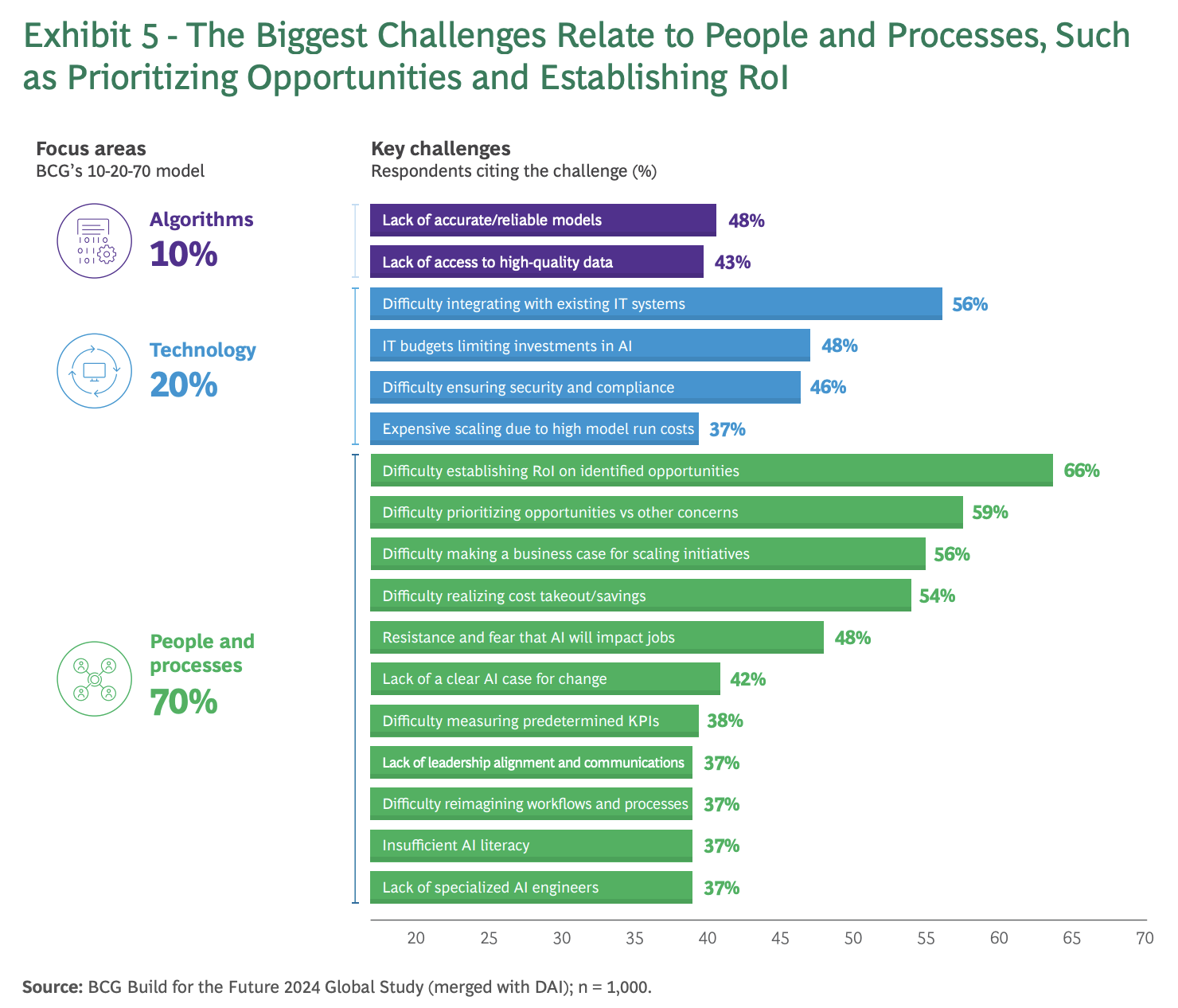
'Without decisive action, they risk falling significantly behind,' says expert

Nearly three in four organisations across the world have yet to see tangible value from their investment in artificial intelligence, leaving them at risk of falling behind those who have already realised AI's potential, according to a new report.
The report, released by Boston Consulting Group, surveyed 1,000 CxOs and senior executives from over 20 sectors, spanning 59 countries in Asia, Europe, and North America.
It found that 74% of the organisations have yet to show tangible value from their use of AI.
"Three-quarters of companies have yet to unlock value from AI," said Amanda Luther, a BCG partner, managing director, and co-author of the report, in a statement. "Without decisive action, they risk falling significantly behind."
On the other hand, only 26% have developed the necessary set of capabilities to move beyond proofs of concept and generate tangible value.
Among them, 22% already have an AI strategy, built advanced capabilities, and are beginning to realise substantial gains, while four per cent have developed cutting-edge AI capabilities across functions and consistently generate significant value.
According to the report, these AI leaders share the following characteristics:
Meanwhile, the report found that around 70% of challenges faced by organisations in implementing AI initiatives relate to people- and process-related issues.
Another 20% attributed it to technology problems, while only 10% involved AI algorithms, according to the report.

Source: BCG
To address the problem, the report said employers need to focus their highest attention on people- and process-related issues.
"To get AI transformation right, 70% of the focus should be on people and processes," the report read, such as:
Another 20% should be allocated to technology (such as data management, cyber security and risk management) while only 10% should be focused on algorithms (such as model quality and data analytics).
"This research reaffirms our long-held belief that when companies undertake digital or AI transformations, they need to focus two-thirds of their effort and resources on people-related capabilities, and the other third or so split between technology and algorithms," Luther said.